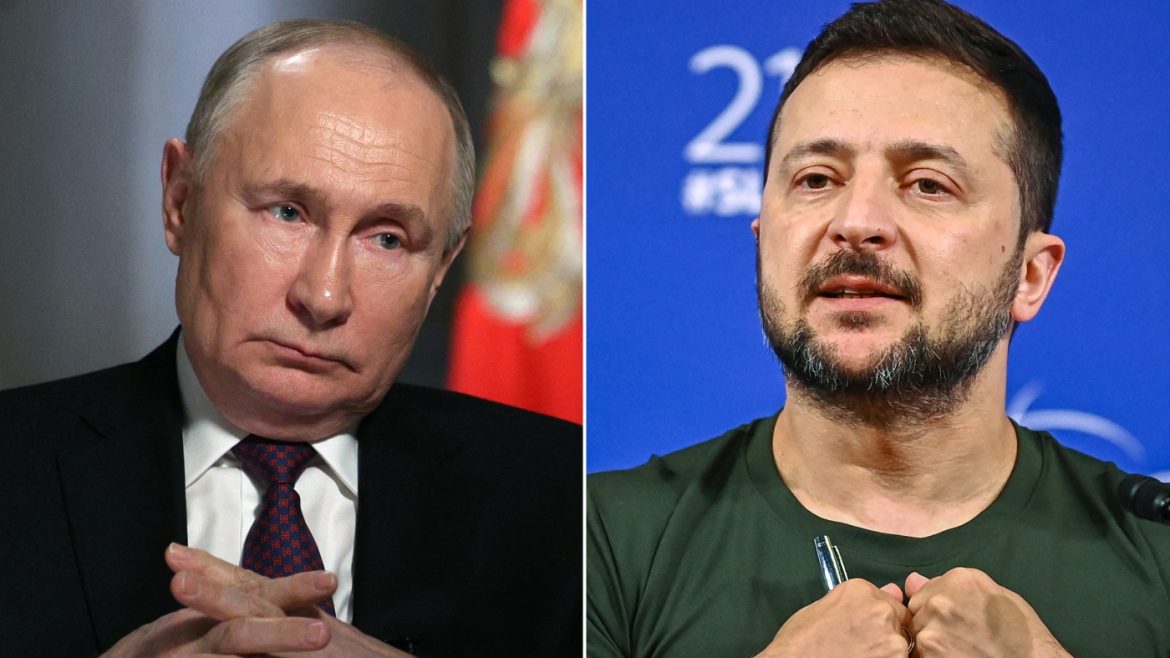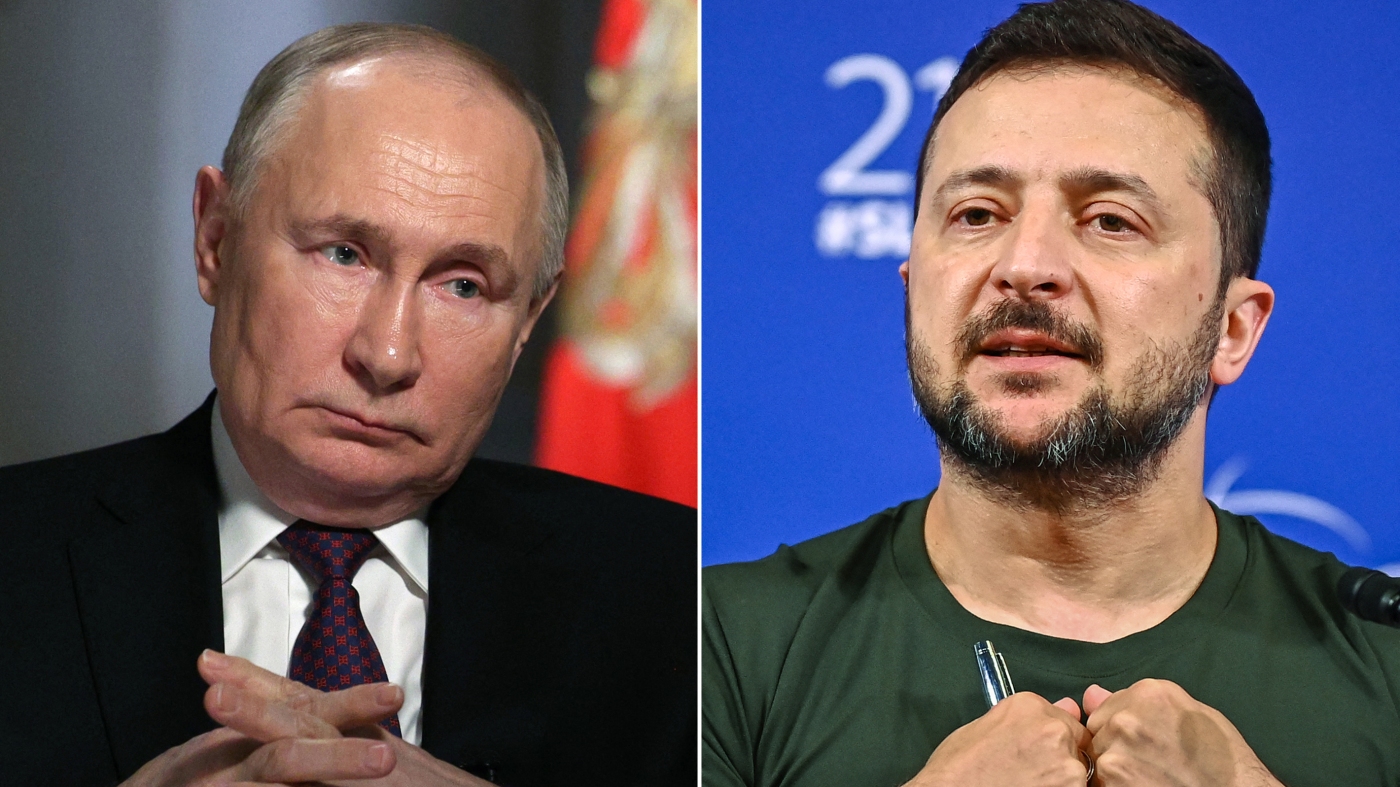The Geopolitical Chess Game: Analyzing the Complex Dynamics of Russia-Ukraine Talks and Trump’s Involvement
The geopolitical landscape is fraught with tension as Russia and Ukraine prepare for potential direct talks, with President Trump adding an unexpected layer of complexity to the situation. The diplomatic maneuvering began in late April when Russian President Vladimir Putin unilaterally announced a three-day ceasefire to mark World War II Victory Day celebrations. This move was met with skepticism from both Moscow and Kyiv, each accusing the other of violating a truce that Ukraine had never agreed to. The ceasefire, however, prompted Ukraine, backed by European leaders, to consider a more proactive diplomatic approach. The United States, under President Trump, has also inserted itself into the fray, offering to join prospective talks in Turkey.
The Diplomatic Maze: European and American Interventions
The diplomatic landscape is a complex web of interests and alliances. European leaders, including those from France, Germany, the United Kingdom, and Poland, have been actively involved in mediating the conflict. Their efforts were bolstered by a plan announced by European leaders during a visit to Kyiv, which called for a 30-day ceasefire before any direct talks. However, President Trump’s intervention has added a new dynamic to the situation. Trump’s offer to join the talks in Turkey has left European allies and Ukrainian officials worried about being sidelined. The U.S. administration’s approach has been seen as potentially undermining the European-led efforts, with Trump’s unilateral moves raising concerns about coordination and strategy.
Trump’s Unconventional Diplomacy
President Trump’s involvement in the Russia-Ukraine conflict has been characterized by his unconventional diplomatic style. His offer to join the talks in Turkey and his calls for direct negotiations between Russia and Ukraine have been met with a mix of skepticism and concern. Trump’s suggestion that he may even make a cameo in the talks adds an element of unpredictability to the already tense situation. His approach, which includes threatening to end U.S. involvement if negotiations do not advance, has left many wondering about the long-term implications for U.S. foreign policy and its role in global diplomacy.
The Unknowns Ahead
The potential direct talks between Russia and Ukraine in Turkey are shrouded in uncertainty. There are numerous unknowns, including the willingness of both parties to engage in meaningful dialogue, the role of external mediators, and the potential outcomes of such talks. The talks are scheduled to take place in Istanbul, a city with historical significance in diplomatic negotiations. The choice of venue adds a layer of symbolism to the proceedings, but it also raises questions about the practicalities of the negotiations.
The Ukrainian Perspective
Ukrainian President Volodymyr Zelenskyy has responded guardedly to the proposal for direct talks. He has demanded a ceasefire before any negotiations, a position supported by European leaders. Zelenskyy’s cautious approach reflects the deep-seated mistrust between the two nations and the complex nature of the conflict. The Ukrainian leader has also expressed concerns about being sidelined in the negotiations, highlighting the importance of European and U.S. involvement in any peace process.
The Russian Stance
Russian President Vladimir Putin has proposed holding direct talks with Ukraine on May 15 in Istanbul, a move that coincides with his earlier suggestion for a ceasefire. Putin’s proposal came hours after major European powers demanded a 30-day ceasefire, adding to the diplomatic pressure. Russia’s willingness to engage in direct talks, albeit with conditions, signals a potential shift in its stance. However, the conditions set by Russia, including the rejection of a U.S.-backed ceasefire proposal, indicate that the path to a resolution is fraught with challenges.
The European Dilemma
European leaders find themselves in a delicate position. On one hand, they are committed to supporting Ukraine and promoting a peaceful resolution to the conflict. On the other hand, they are concerned about being sidelined by the U.S. administration’s unilateral moves. The European Union’s role in the talks is crucial, given its economic and political influence in the region. The challenge for European leaders is to balance their support for Ukraine with the need to maintain a cohesive and effective diplomatic strategy.
The American Dilemma
The U.S. administration, under President Trump, faces its own set of challenges. Trump’s approach to the conflict has been characterized by a mix of unilateralism and a willingness to engage directly with Russia. His calls for direct talks and his offer to join the negotiations in Turkey reflect a desire to play a more active role in the peace process. However, his threats to end U.S. involvement if negotiations do not advance raise concerns about the sustainability of U.S. engagement in the region. The U.S. administration must navigate these complexities while ensuring that its actions align with its broader foreign policy goals.
The Path Forward
The path to a resolution in the Russia-Ukraine conflict is fraught with challenges. The potential direct talks in Turkey offer a glimmer of hope, but the outcome remains uncertain. The involvement of external mediators, including the U.S. and European leaders, will be crucial in shaping the negotiations and ensuring a sustainable peace. The talks must address the root causes of the conflict, including territorial disputes and political differences, to pave the way for a lasting resolution.
Conclusion: A Pivotal Moment
The potential direct talks between Russia and Ukraine in Turkey mark a pivotal moment in the conflict. The involvement of President Trump and the complex dynamics of European and American diplomacy add layers of uncertainty and intrigue. As the world watches, the outcome of these talks will have far-reaching implications for the region and global geopolitics. The coming days will be crucial in determining the future of the conflict and the role of external mediators in shaping a peaceful resolution. The stakes are high, and the world awaits with bated breath.


